Delta 8 THC is a cannabinoid with milder effects than delta 9 THC. This article explains its benefits, risks, legal status, and more.
Key Takeaways
- Delta 8 THC is a cannabinoid with a chemical structure similar to delta 9 THC but offers milder psychoactive effects, making it popular among users seeking a less intense experience.
- The legal status of delta 8 THC varies significantly by state, with some states banning it outright and others allowing its sale, requiring users to remain informed about local regulations.
- Despite its therapeutic benefits, safety concerns arise due to a lack of manufacturing regulation, leading to possible contamination; comprehensive research is necessary to understand its health implications and promote safe consumption.
Understanding Delta 8 THC
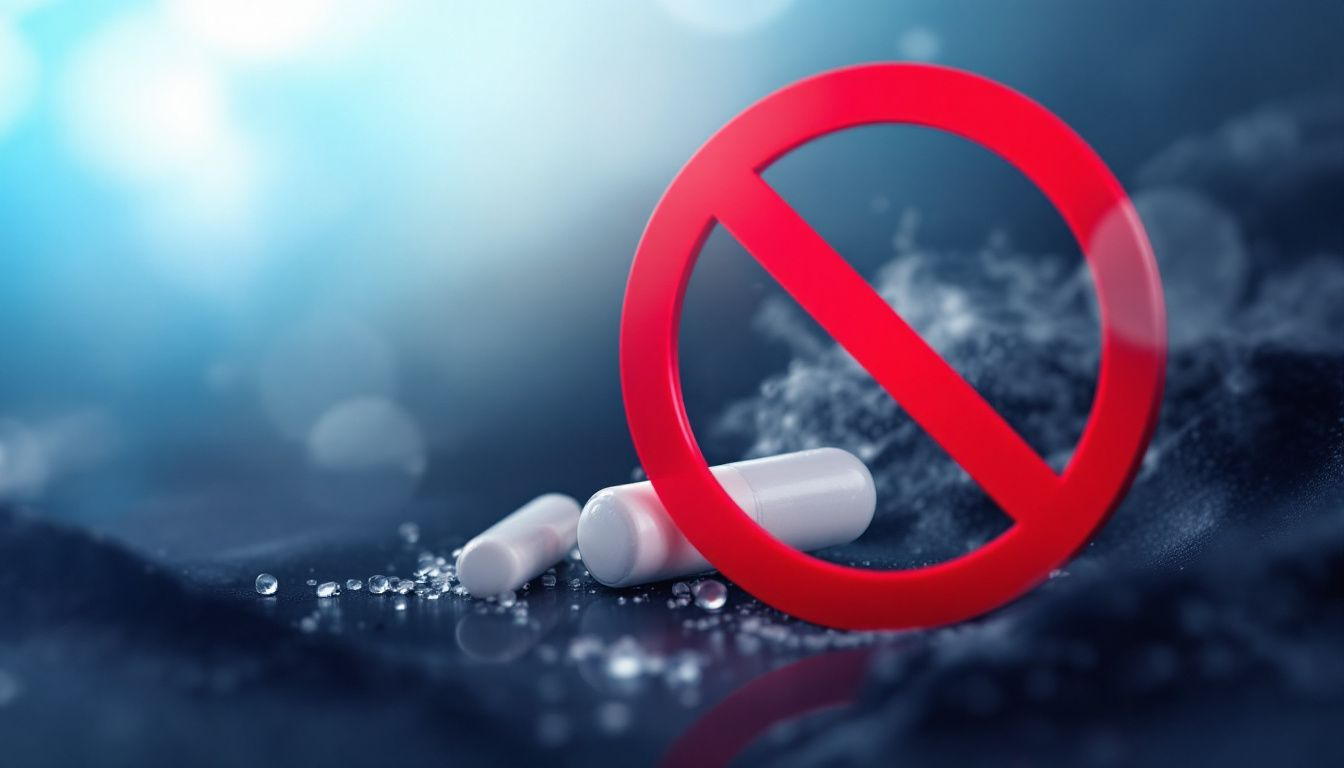
Delta 8 THC is a cannabinoid found in both hemp and cannabis. It is an isomer of delta-9 THC, which means it shares a similar chemical structure but with a slight difference: the double bond in delta 8 THC is located between the eighth and ninth carbon atoms, while in delta 9 THC, it is between the ninth and tenth. This small variation significantly impacts the potency and psychoactive effects of the two compounds.
Delta 9 THC, found in high concentrations in marijuana, is the primary psychoactive component responsible for the cannabis “high.” In contrast, delta 8 THC appears in smaller quantities when you plant cannabis sativa, especially hemp. Despite its lower natural abundance, delta 8 THC has gained popularity for its milder psychotropic effects, which many find appealing.
Many cannabis consumers view delta 8 THC as a potential alternative to delta 9 THC, especially for a less intense experience. Its inclusion in various hemp-derived products has made it a prominent figure in the expanding market of cannabis and hemp products.
Mechanism of Action
Delta 8 THC interacts with the body’s cannabinoid receptors, primarily CB1 and CB2, acting as a partial agonist like delta 9 THC. However, delta 8 THC has a reduced affinity for these receptors, resulting in milder psychotropic effects compared to delta 9 THC.
This difference in receptor interaction stems from delta 8 THC’s unique chemical structure and chemical compound, specifically the double bond location. This structural variance results in moderate potency, offering a milder overall experience.
For those seeking the therapeutic aspects of cannabinoids without the intense psychoactive effects, delta 8 THC presents a compelling option.
Legal Status of Delta 8 THC
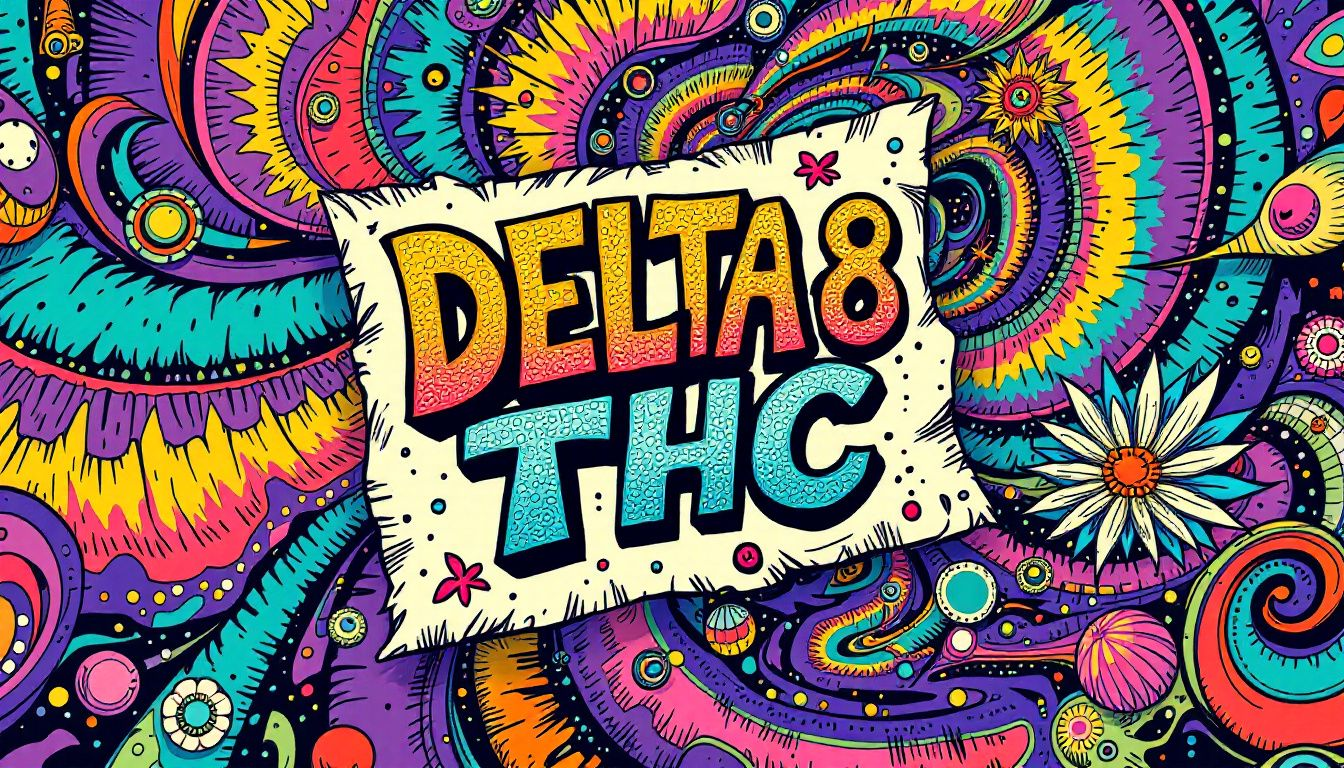
The legal status of delta 8 THC is a complex and evolving landscape. The Agriculture Improvement Act of 2018, commonly known as the Farm Bill, legalized hemp-derived products at the federal level, including those containing delta 8 THC. However, this has not resulted in uniform acceptance across the United States, as individual states have taken varied approaches to regulation.
In some states, delta 8 THC is banned outright, including Alaska, Colorado, and New York. Other states have introduced regulations or restrictions, often treating delta 8 THC similarly to other cannabis products, requiring it to be sold through licensed establishments. For example, in Michigan, delta 8 THC can only be sold by licensed dispensaries, while states like Alabama and Arkansas allow it to be sold unregulated.
The legal landscape continues to evolve, with states like California and Nevada integrating delta 8 THC into their broader cannabis legislation. Staying informed about state laws is crucial, as the legality of delta 8 THC can significantly impact its availability and usage.
Methods of Consumption
Delta 8 THC offers various consumption methods to cater to different preferences among cannabis users. Edibles are a popular choice, providing a convenient and discreet way to consume delta 8 THC, with effects lasting several hours.
Vaped concentrates are another common method, offering a quicker onset of effects compared to edibles, making it attractive for immediate relief. Additionally, tinctures consumed sublingually offer a middle ground between edibles and vaping concerning onset time and duration.
Other, less common methods include smoking concentrates, bud, and topical applications. Each method has its advantages and drawbacks, allowing users to choose what best suits their needs. Whether through edibles, vapes, or tinctures, delta 8 THC products offer versatility for everyone.
Reported Effects and Benefits
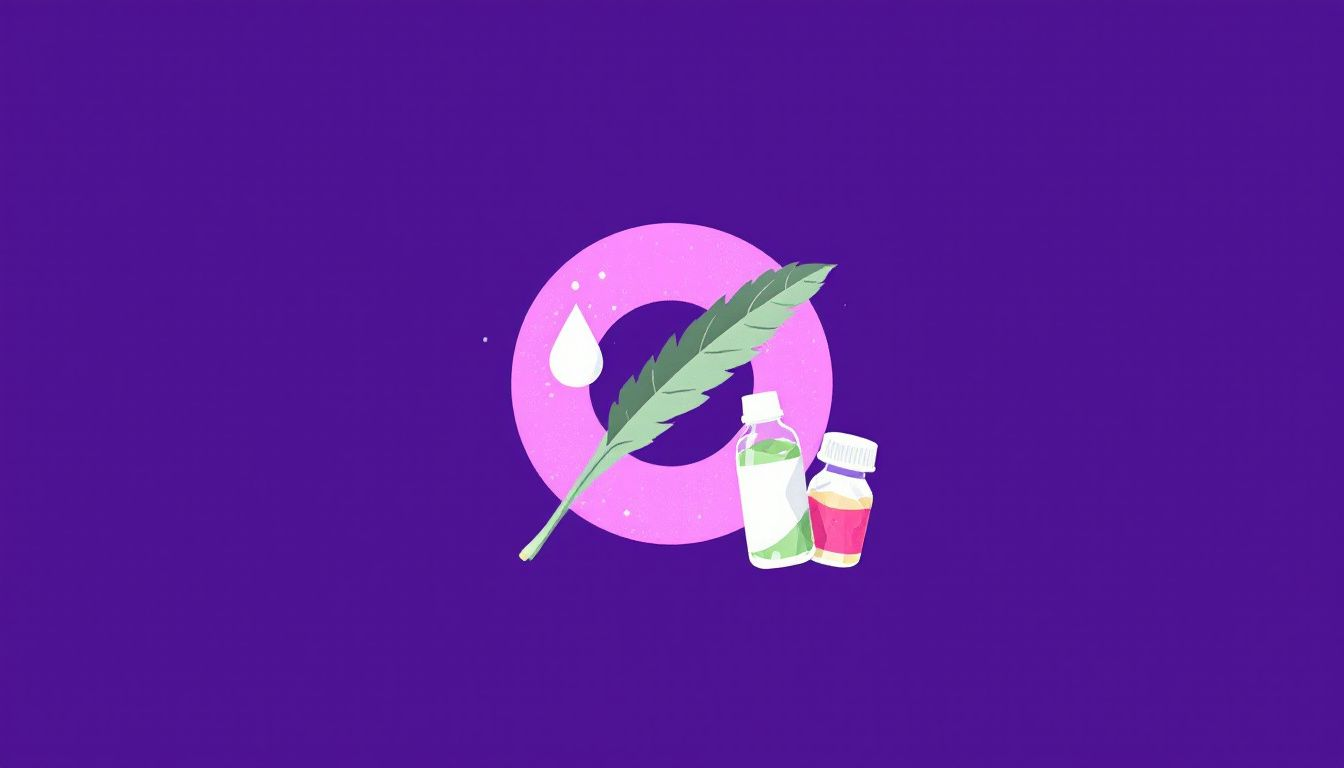
Delta 8 THC is often described as a milder, more manageable version of delta 9 THC. Users frequently report a gentler euphoric high, with psychoactive effects around 75% of those produced by delta 9 THC. This makes delta 8 THC appealing for those seeking THC benefits without the intense high that can lead to anxiety or paranoia.
Many users also note a more relaxed body sensation, contributing to a smoother experience. This relaxation often comes with a sense of clarity and calmness, allowing users to maintain mental control and focus, making delta 8 THC particularly attractive for those looking to unwind without feeling overwhelmed.
Beyond its psychoactive properties, delta 8 THC offers therapeutic benefits like anxiety reduction and appetite stimulation. The consumption method influences potency and duration, with edibles and tinctures often more powerful than inhaled forms. These benefits highlight delta 8 THC’s potential as a versatile and valuable addition to cannabis products.
Safety Profile and Concerns
While delta 8 THC offers enticing benefits, safety concerns and potential risks must be addressed. A significant issue is the lack of regulation in manufacturing, leading to products possibly contaminated with harmful substances like heavy metals and pesticides. The conversion process from hemp-derived CBD to delta 8 THC involves various chemicals and chemical synthesis, raising further safety concerns.
The lack of stringent regulatory oversight means delta 8 THC product quality and safety can be inconsistent. This inconsistency poses health risks like respiratory depression and lethargy, especially when products contain unknown or harmful additives. Ingestion is the most common exposure route, contributing to the majority of reported adverse health effects.
Current legal ambiguities surrounding delta 8 THC hinder comprehensive research into its psychoactive effects and therapeutic applications. As a result, consumers must exercise caution and seek reputable sources when purchasing delta 8 THC products. Rigorous safety standards and proper regulation are crucial for ensuring user well-being.
Therapeutic Potential

Despite safety concerns, delta 8 THC holds significant therapeutic potential, particularly in pediatric oncology. Studies have shown its effectiveness as an antiemetic, completely preventing chemotherapy-induced vomiting in children with hematologic cancers. In one study, eight children were given delta 8 THC before chemotherapy sessions, resulting in negligible side effects and no delayed nausea or vomiting.
The dosage used in these pediatric cases was higher than typically recommended for adults using delta 9 THC, yet the children tolerated it well. This suggests delta 8 THC could be valuable in medical care, offering lower psychotropic potency while providing significant therapeutic benefits. Additionally, delta 8 THC’s ability to stimulate appetite with less intensity than delta 9 THC makes it suitable for patients with lower appetites.
The stability of delta 8 THC compared to delta 9 THC allows for a longer shelf life and reduced production costs, enhancing its practicality for therapeutic use. These attributes underscore delta 8 THC’s potential as an efficient new cannabinoid antiemetic and a promising substance in medicine.
Public Health Implications
The rise in delta 8 THC use has significant public health implications, particularly concerning adolescent use and unintentional ingestion. In 2023, around 11% of high school seniors reported using delta 8 THC, highlighting its accessibility among younger individuals, especially in states without strict regulations. The absence of a federal minimum age requirement for purchase exacerbates this issue, making delta 8 THC easily accessible to adolescents.
The increase in reported exposures to delta 8 THC, particularly among young children, is alarming. Many of these cases involved unintentional ingestion, often due to the appealing forms in which delta 8 THC products are sold, such as gummies and other edibles. Public health concerns also arise from the sale of unregulated products, which may contain harmful contaminants.
State regulations play a crucial role in mitigating these risks, with higher exposure rates observed in unregulated states compared to those with bans or strict regulations. Understanding consumer perceptions and concerns regarding the safety and regulation of delta 8 THC products is essential for developing effective public health sciences strategies.
Consumer Trends and Market Availability

The market for delta 8 THC has experienced explosive growth, with sales skyrocketing by 1,283% from 2020 to 2023, reaching nearly $2.8 billion. Delta 8 THC now accounts for 44% of the total U.S. hemp-derived cannabinoid market, generating $1.2 billion in sales in 2023. This rapid growth is partly due to the widespread availability of delta 8 THC products in convenience stores and gas stations, particularly in states with less stringent regulations.
Consumer confusion regarding the differences between regulated cannabis and hemp-derived THC has created opportunities for brands to expand nationally. In states where recreational marijuana is legal, consumer demand for delta 8 THC products decreases as consumers tend to prefer regulated cannabis products. This trend underscores the influence of legal status on market dynamics.
Despite its popularity, the availability of delta 8 THC is notably influenced by the legal landscape. In regions with established legal frameworks for cannabis sales, delta 8 THC products are less prevalent. Staying informed about local regulations is crucial when considering the purchase of delta 8 THC products.
Future Research Directions
Future research on delta 8 THC is essential to better understand its health outcomes, particularly among adolescents. Studies aim to explore its use among younger teens and assess its impact across a broader demographic. This research is crucial for developing effective public health strategies and ensuring the safe use of delta 8 THC.
Collaborations between academics, government officials, and the cannabis industry can facilitate the advancement of knowledge regarding delta 8 THC. Such partnerships are vital for conducting comprehensive studies that address both the therapeutic aspects and potential risks of this cannabinoid.
Future research should also focus on consumer perceptions and the broader social implications of delta 8 THC use. Understanding the attitudes and behaviors of young people towards delta 8 THC can inform educational campaigns and policy decisions, ultimately contributing to safer and more informed cannabis use.
Policy Considerations
The future of delta 8 THC largely depends on the evolving regulatory landscape, which varies significantly across different states. The rise in delta 8 THC consumption is linked to inconsistencies in state-level regulations and the legal status of cannabis. Regulatory bodies like the National Institute on Drug Abuse monitor the impact of delta 8 THC and its implications for public health.
The FDA has issued warnings regarding the health risks of delta 8 THC, citing adverse events linked to its use. These warnings highlight the need for stringent regulatory oversight to ensure the safety and quality of delta 8 THC products. The absence of a federal age restriction allows delta 8 THC products to be sold in various public venues, including convenience stores, further complicating the regulatory landscape.
Delta 8 THC use is more prevalent in regions lacking cannabis legalization and specific delta 8 regulations. This underscores the importance of developing consistent policies that address the unique challenges posed by delta 8 THC, ensuring both consumer safety and public health.
Summary
In summary, Delta 8 THC is a fascinating cannabinoid with a unique profile that distinguishes it from Delta 9 THC. Its milder psychoactive effects, potential therapeutic benefits, and growing market presence make it an important topic for both consumers and policymakers. However, the current lack of regulation and safety concerns highlight the need for more comprehensive research and consistent policy measures. As we move forward, staying informed about the evolving legal landscape and making educated decisions about Delta 8 THC use will be crucial. By understanding its benefits, risks, and legal status, we can navigate the complex world of cannabis products with confidence and responsibility. “`markdown
Frequently Asked Questions
What is Delta 8 THC?
Delta 8 THC is a cannabinoid derived from hemp and cannabis plants, distinct from Delta 9 THC due to a variation in its chemical structure that influences its potency and psychoactive effects. This makes it a unique alternative for those exploring the effects of cannabinoids.
How does Delta 8 THC work in the body?
Delta 8 THC operates by binding to cannabinoid receptors, specifically CB1 and CB2, in the endocannabinoid system, which leads to milder psychoactive effects compared to Delta 9 THC. Consequently, users may experience a gentler, more manageable high.
Is Delta 8 THC legal?
Delta 8 THC’s legal status is inconsistent across states; although federally legal due to the Agriculture Improvement Act of 2018, some states have enacted bans or regulations. It is essential to check specific state laws to determine its legality in your area.
What are the common methods of consuming Delta 8 THC?
Delta 8 THC can be effectively consumed through edibles, vaped concentrates, tinctures, and smoking. Edibles and vapes are particularly favored for their convenience and potency.
What are the potential therapeutic benefits of Delta 8 THC?
Delta 8 THC may provide therapeutic benefits including antiemetic properties, anxiety reduction, and appetite stimulation, making it potentially suitable for a variety of medical applications. Its effects are generally milder than those of Delta 9 THC.


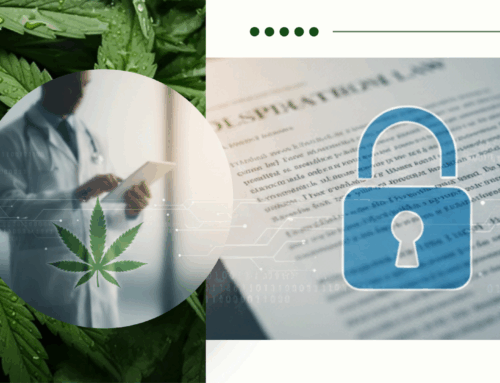


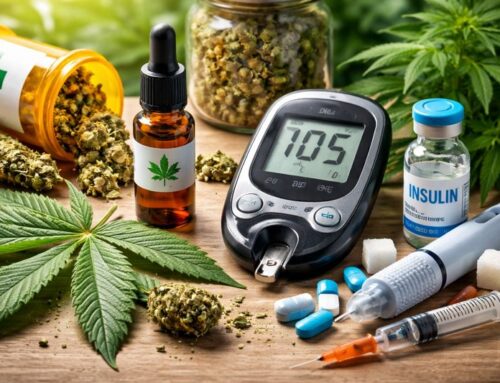
Leave A Comment
You must be logged in to post a comment.